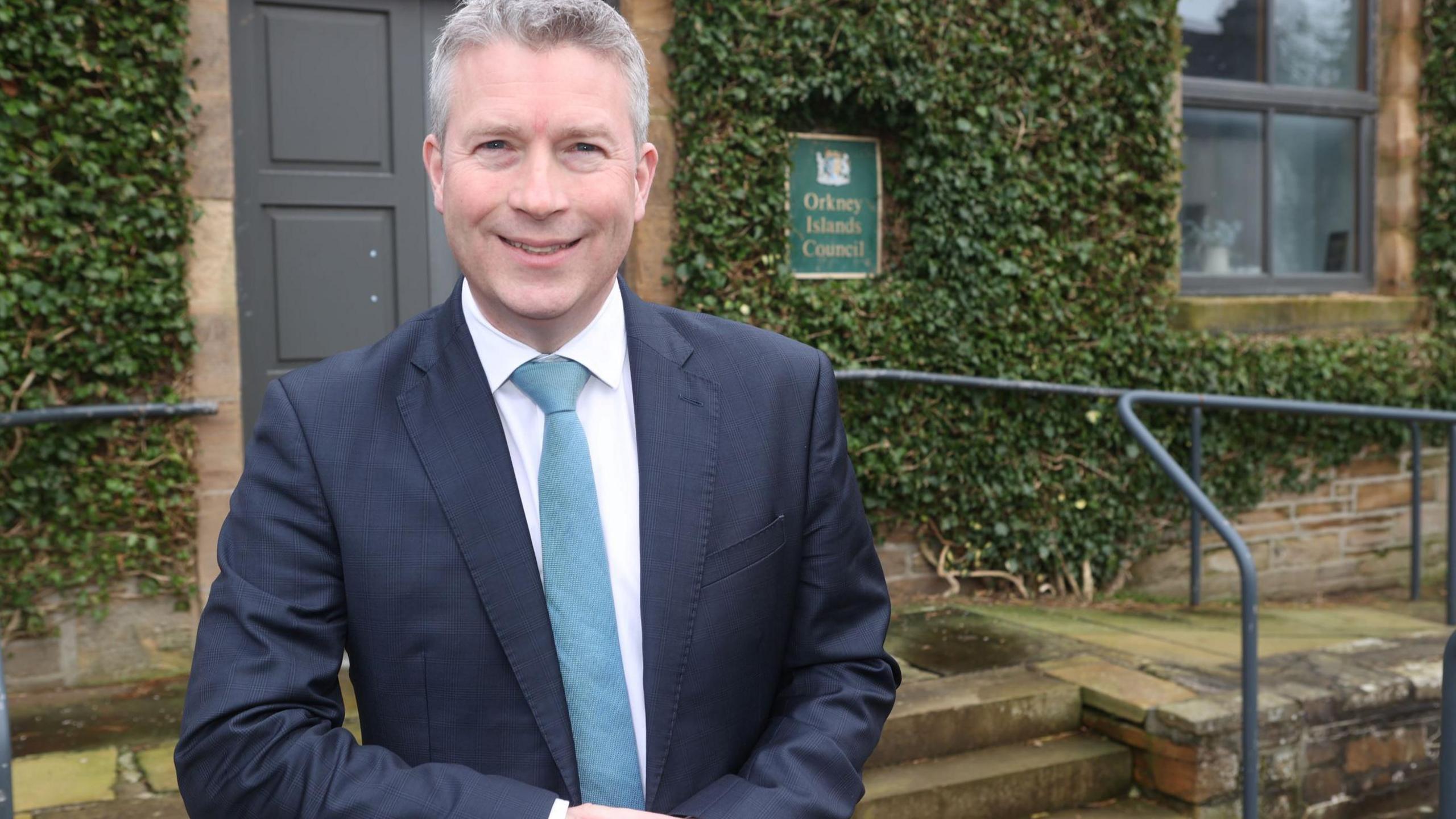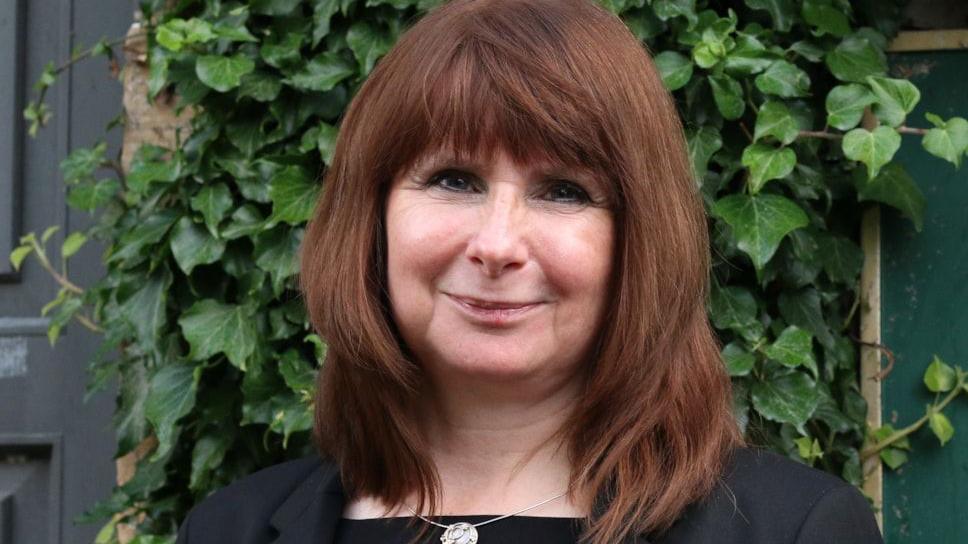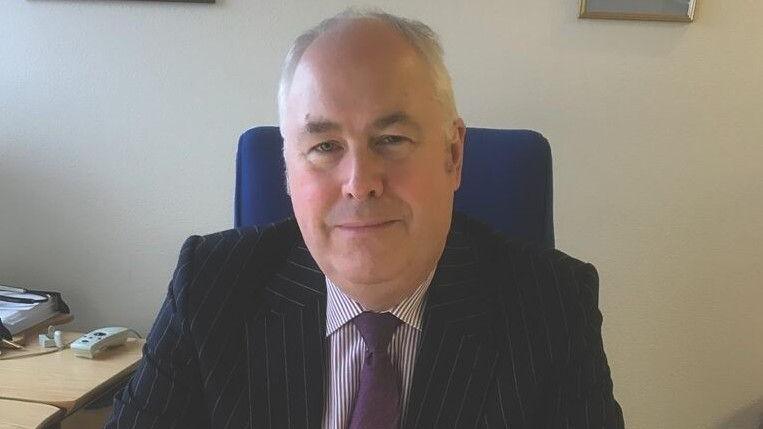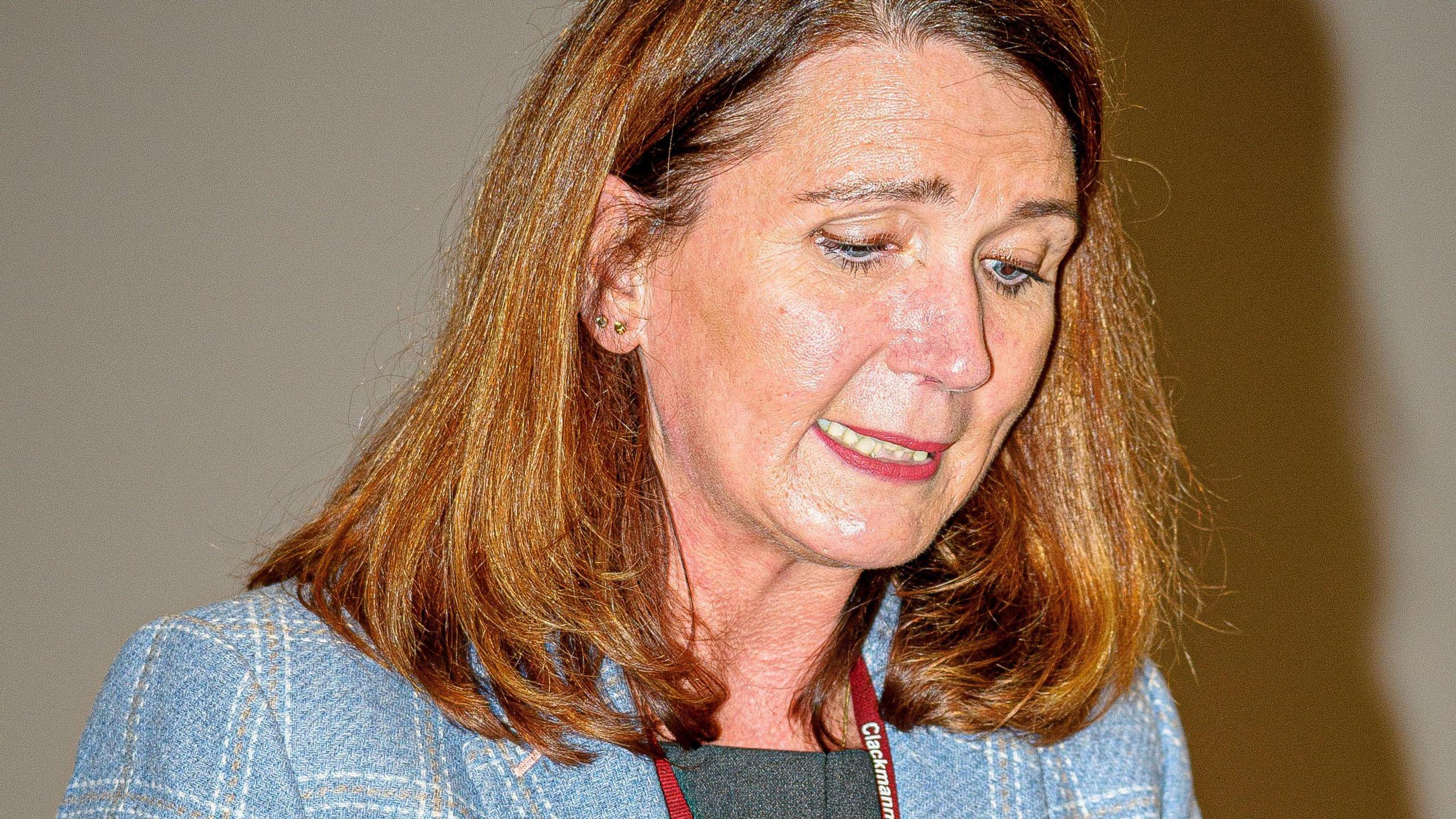Bosses of smallest councils to get huge pay rises

Oliver Reid, of Orkney Council, will get £165,755 for running Scotland's smallest council
- Published
The chief executives of Scotland's four smallest councils are in line to get pay rises of as much as 24% after a review of local authority heads' pay.
The bosses of the councils in Orkney, Shetland, the Western Isles and Clackmannanshire will see their salary increase by more than £30,000 as a result of the review seen by BBC News.
The new pay framework agreed by council umbrella body Cosla and the group that represents bosses, Alace, has set salaries of between £165,755 and £230,620 based on council size.
This means the chief executive of Orkney - which has a population of just 22,000 - will see his pay jump £32,000 by this time next year but the boss of Glasgow, which is almost 30 times as large, will get a rise of £4,000.

Maggie Sandison from Shetland will see her pay rise by £32,000
Under the new pay framework, Oliver Reid from Orkney will see his pay leap from £133,530 to £165,755 by November 2026 - and that's before any annual pay rise awarded by the council.
Malcolm Burr, who is stepping down as the chief executive of Comhairle nan Eilean Siar (Western Isles council) after 20 years, is to be replaced by a successor who will be offered a starting salary of £136,389.
That will increase to £165,755 next year under the new agreement, a hike of £29,366.
Under the new deal, the average pay rise across all Scotland's 32 local authority chiefs is almost £20,000.
The 12% across-the-board increase compares to 4% for frontline staff this year and comes after an average 9.5% rise in council tax bills.

Karen Greaves at Moray Council will see her salary rise by £33,000
The chief executive of Moray Council, which serves 95,000 people, would see her salary rise from £140,136 to £173,217 - up £33,000.
The boss of Midlothian would get a rise of £30,000 and Stirling would get £24,000.
Inverclyde Council, which serves 79,000 people, would see the chief executive salary rise from £153,365 to £169,445 - more than £16,000.
At the other end of the scale, the chief executives of the largest councils - Glasgow, Edinburgh, Fife, North and South Lanarkshire - get the lowest increases.
The full amount of the pay rise will be applied by 1 November 2026.
In addition to the new pay framework, all local government staff will have a nationally-negotiated pay settlement which applies from April.
A statement from Cosla said it was appropriate to review salaries periodically to ensure remuneration reflected the demands of the role.
It said the pay of chief executives had not been reviewed for 25 years.

Malcolm Burr is stepping down as the chief executive of Comhairle nan Eilean Siar but his replacement will get a £30,000 pay rise
"Since then, the role and legal duties of councils, of which the chief executive is the lead officer, have changed significantly in terms of increased complexity, scale and level of risk," the statement said.
"Council population sizes - a key component of the pay framework - have changed and chief executive pay has not kept pace with internal or wider public sector levels, creating challenges in recruitment and retention."
Cosla said chief executives were responsible for everything from education and childcare, housing, social work and care, to roads and transport, waste and recycling, and leisure and culture.

The chief executive of Clackmannanshire Council, Nikki Bridle, will get a £32,000 pay rise
STUC general secretary Roz Foyer said: "Cosla's decision to award top bosses above-inflation pay rises is deeply flawed and will quite rightly create a huge backlash from workers and the public they serve.
"Staff and service users across the country are facing cuts to services, continued low pay and an increasing cost of living.
"It is simply rubbing salt into the wounds of ordinary workers who, yet again, can see that when it come to pay it's one rule for the bosses and another rule for everyone else."